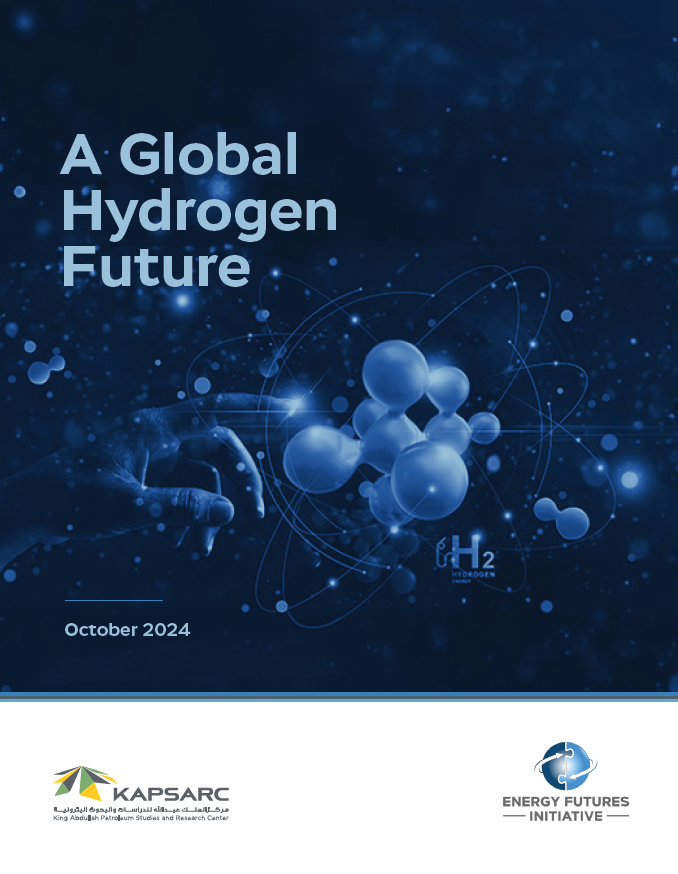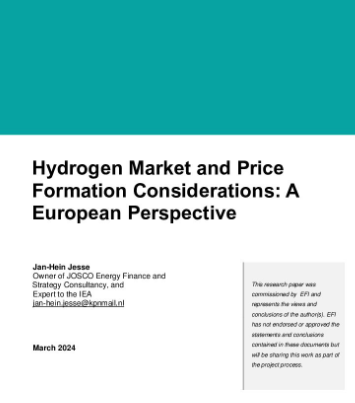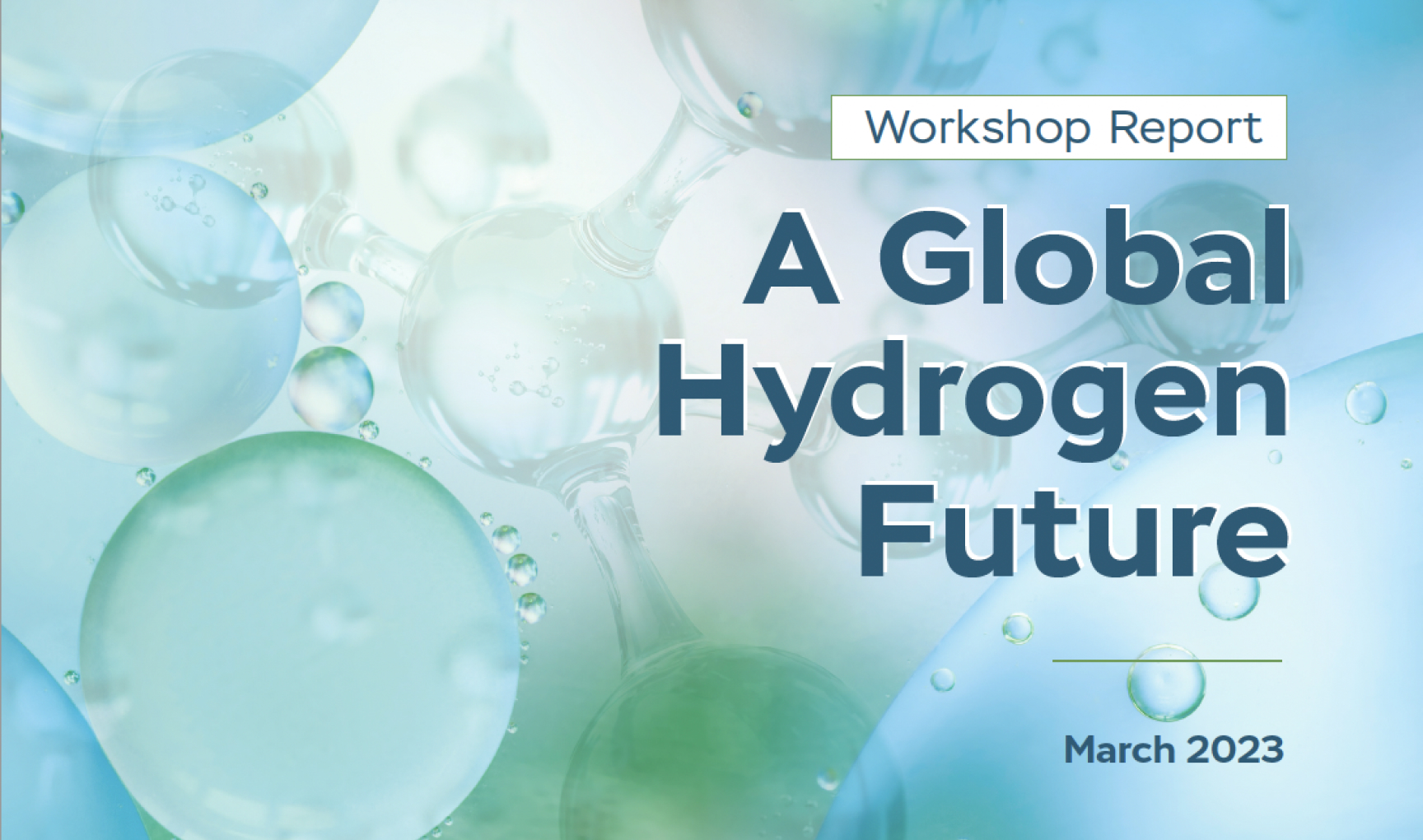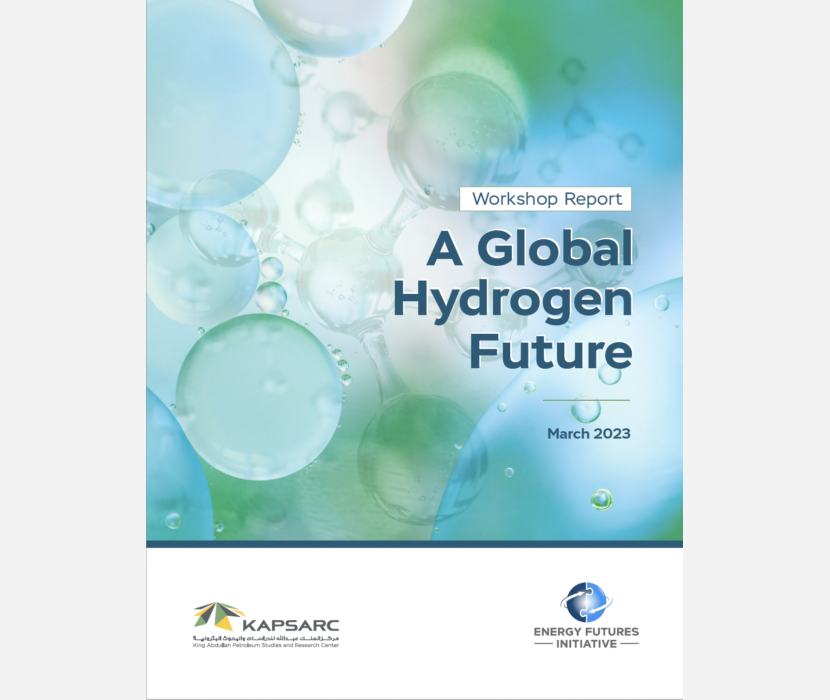A Global Hydrogen Future (October 2024) aims to inform stakeholders of the global hydrogen market’s development and likely future. The report is the product of a two-year joint work program between the Energy Futures Initiative (EFI) and the King Abdullah Petroleum Studies and Research Center (KAPSARC). The report was also supported by in-person workshops in Washington, D.C., and Dubai, UAE; multiple virtual workshops; multiple whitepapers; and other research, attached as appendices.
The report is global in focus, supported by European, American, Asian, Middle Eastern, and North African perspectives throughout, and led by organizations located in nations that are leaders in global energy markets looking to develop hydrogen as a clean global energy carrier. Hydrogen is a viable solution for issues like industrial decarbonization as the world grapples with the urgent need to address climate change and countries aim to reach net-zero emissions by 2050. Currently, hydrogen is not traded as a global energy commodity, which has led to opaque pricing regimes contingent on demand volumes and isolated regional markets or bilateral agreements. Shipping and transport costs further affect the overall cost competitiveness of clean hydrogen, making it more expensive than fossil fuels. To be economically viable, clean hydrogen must become cost-competitive compared with alternative clean energy pathways.
Despite these challenges, countries and companies around the globe have made substantial commitments to and investment in clean hydrogen projects. As of December 2023, more than 1,400 projects had been announced and nearly $570 billion in direct investments were promised through 2030, with approximately $39 billion reaching the final investment decision stage.
This report and its analysis are structured around three main areas:
- Opportunities for Hydrogen Demand, which highlights the potential for global hydrogen demand by reframing clean hydrogen as an energy carrier emphasizing its role in existing energy systems, as well as where the opportunity for growth exists with the right combination of policy and market factors. Overall, hydrogen presents substantial opportunities for both decarbonization and energy system flexibility, positioning it as an important player in the transition to a low-carbon economy.
2. National Policies and International Regulations, which emphasizes what is needed to spur a global hydrogen market, such as standardization, regulatory certainty, and public-private partnerships.
3. Hydrogen Market and Price Formation, which analyzes the challenges of balancing pricing mechanisms and the possible path of development for a hydrogen economy. Long-term offtake agreements, infrastructure development, and government incentives are critical for market viability.
Governments, international bodies, and industry initiatives have varying emphases on hydrogen as a strategy for meeting all needs and goals, and substantial tasks remain. The report’s recommendations suggest that stakeholders should accelerate efforts in making hydrogen a new energy industry.
Supplemental Material
Related Content
(Share this post with others.)




